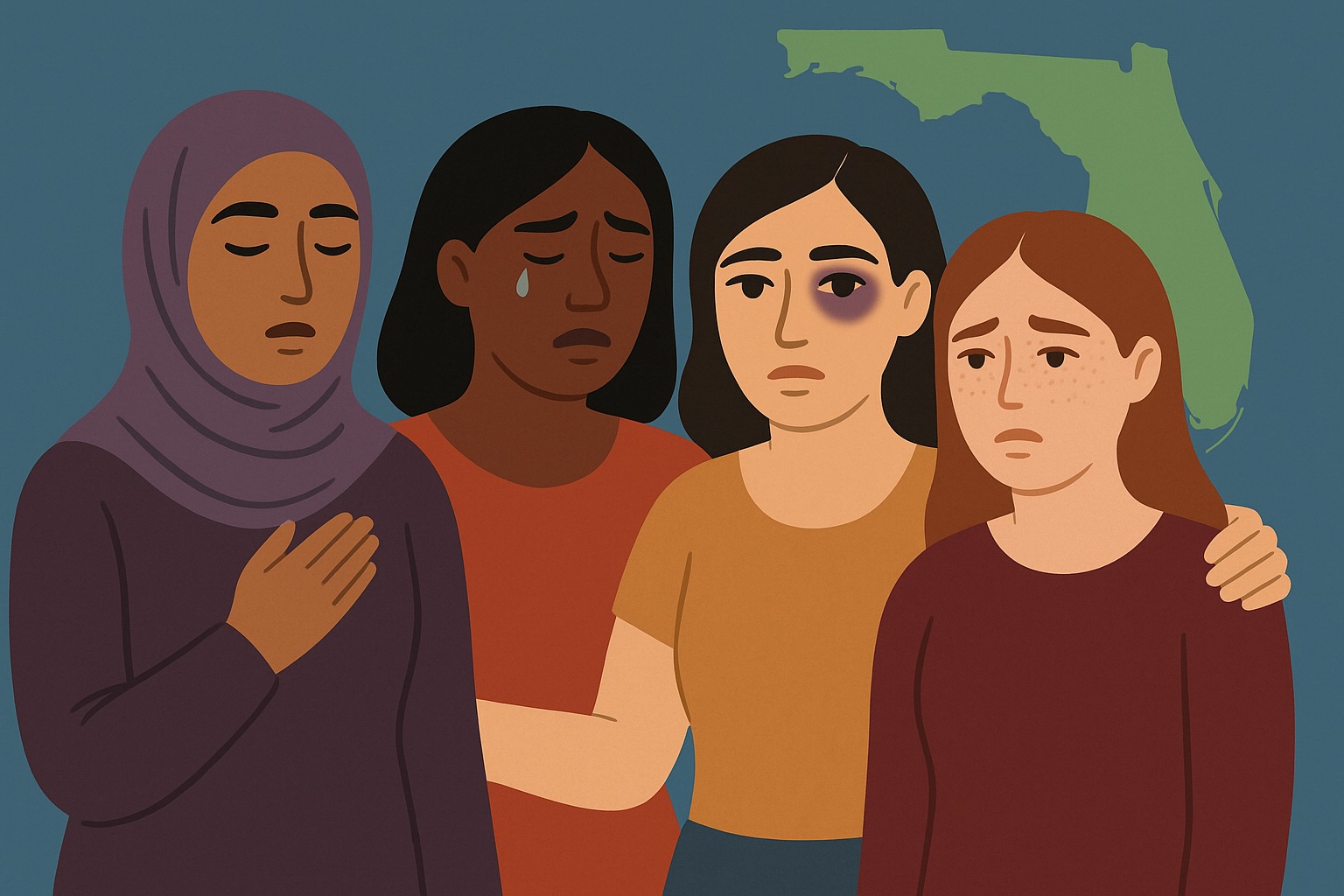Immigrant Survivors of Domestic Violence in Florida
Immigrant survivors in Florida face barriers like immigration fears, language gaps, and stigma when seeking help for domestic violence.

Florida’s immigrant communities, from Miami’s Cuban-American neighborhoods to Orlando’s growing Haitian population, face unique challenges in domestic violence cases. For immigrant survivors, seeking help can feel impossible due to immigration fears, language barriers, and cultural stigma.
Barriers to Safety
Immigration Status: Abusers often threaten survivors with deportation.
Language Gaps: Courts and shelters lack adequate translation.
Cultural Stigma: Survivors fear rejection by families or communities.
Economic Dependence: Many rely on abusers for visas, jobs, or housing.
Legal Protections
VAWA Self-Petition: Survivors can apply for immigration relief independently.
U-Visas: Available to survivors who assist law enforcement.
T-Visas: Protect survivors trafficked into abusive situations.
Community Support
Florida organizations like Americans for Immigrant Justice and Hispanic Unity of Florida provide legal advocacy, bilingual counseling, and housing referrals for immigrant survivors.
Conclusion
Immigrant survivors in Florida often endure double victimization — from their abuser and from systemic barriers. Expanding culturally competent services and immigration protections is critical for their safety.
FAQs
Why do immigrant survivors face more barriers in Florida?
Immigration fears, stigma, and language gaps.What protections exist for immigrant survivors?
VAWA, U-Visas, and T-Visas.What groups help immigrant survivors in Florida?
Americans for Immigrant Justice and Hispanic Unity of Florida.Why don’t survivors seek help?
Fear of deportation or losing community support.What’s the biggest need?
Culturally specific, bilingual survivor services.
